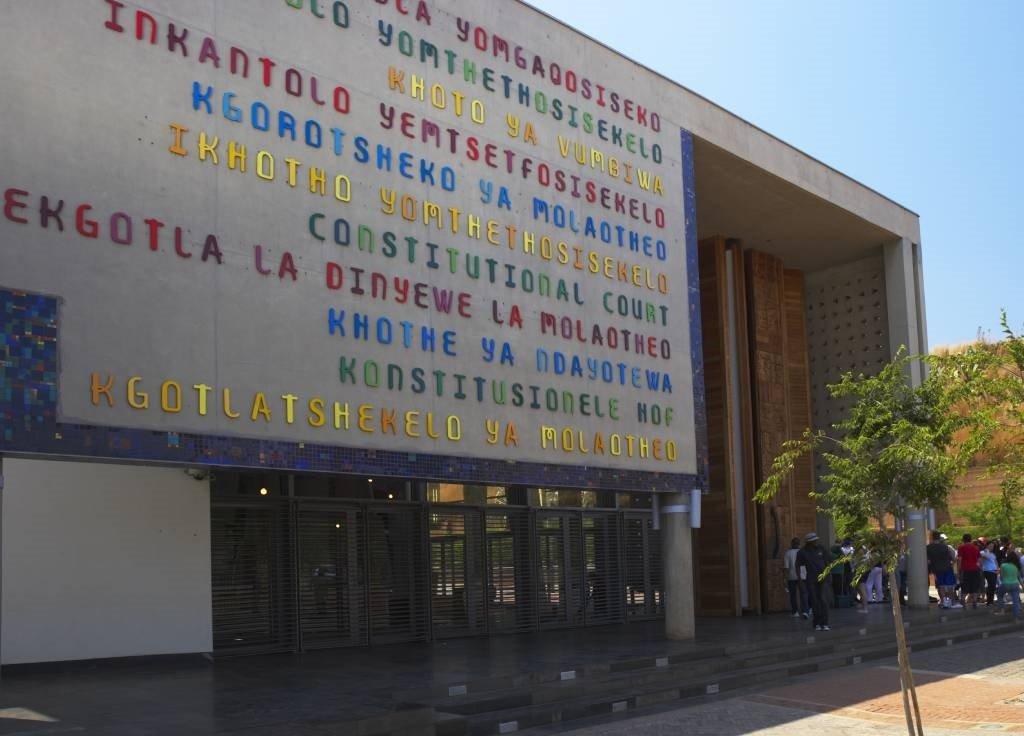Africa-Press – South-Africa. Liqhayiya Tuta, a Unisa LLB student convicted and sentenced to life in prison for the 2018 murder of a police officer, is now a free man following a Constitutional Court ruling in May.
The apex court set aside Tuta’s conviction and sentence and replaced the Gauteng High Court ruling with the finding that the accused is found not guilty and acquitted.
The court ordered Tuta’s immediate release from prison. He was sentenced to life imprisonment for the murder of Constable Nkosinathi Sithole.
He had also been sentenced to 15 years behind bars for the attempted murder of Constable Lawrence Makgafela.
News24 previously reported that in March 2018, Tuta, 21 at the time, was walking with his friend through Sunnyside in Pretoria when the two officers in civilian clothes approached them in an unmarked red VW Polo.
He and his friend ran in different directions and the officers gave chase.
Sithole caught up with Tuta, who fatally stabbed him after he pinned him down. Makgafela was also stabbed and injured.
According to the judgment, Makgafela spent 34 weeks in hospital and now lives with a severely injured left eye that has affected his eyesight.
Tuta admitted to stabbing both police officers and said he left the scene immediately to seek help.
He testified that when he failed to receive assistance from security guards in the vicinity, he went to his residence.
When he arrived there, he told the security guard what had happened and called his sister to tell her.
The following day, Tuta and his sister went to the police station, left his contact details and address and was later arrested.
He approached the apex court seeking leave to appeal the conviction and sentencing after the Supreme Court of Appeal dismissed his application.
During his trial in the Pretoria High Court, Tuta said he acted in self-defence, thinking the men were trying to rob and kidnap him. He told the court there was nothing that identified them as police officers.
In finding Tuta guilty, based on the strength of Makgafela’s testimony, Judge Bert Bam said he found it improbable that “two experienced policemen on patrol duty on a specific mission and purpose, would, without rhyme or reason, attack an innocent pedestrian”.
However, acting justice David Unterhalter, who wrote the majority judgment said the evidence of what occurred after the stabbing was not challenged by the prosecution.
He wrote:
Unterhalter said Tuta’s account of what he did after the stabbing was consistent with his version that he thought assailants were attacking him and that his life was in danger.
“Had the trial judge focused his assessment on the applicant’s state of mind, he could not have simply rejected the post-stabbing conduct of the applicant as improbable. It was, after all, uncontradicted and borne out by the arrest of the applicant [Tuta]. It was evidence supportive of [Tuta’s] account of his state of mind.”
He continued:
Unterhalter further stated in his judgment that an accused who holds the genuine but mistaken belief that his life is endangered lacks the intention to act unlawfully and is not guilty of murder.
“The issue is simply what belief did the accused hold at the relevant time. Whether the accused’s mistaken belief, though genuinely held, was reasonable or not, determines whether the accused is guilty of culpable homicide.
“The trial judge, in formulating the test for putative private defence, was unquestionably passing judgment on the charges of murder and attempted murder. He was not considering the separate question as to whether the applicant, if not guilty of murder, was nevertheless guilty of culpable homicide.
“That enquiry would have followed only after it was established that the applicant had held a particular belief – the question would then have been, was that belief reasonable? If not, he could have been convicted of culpable homicide, a competent verdict on a charge of murder.”
Unterhalter said the trial judge had approached the case on the basis that if he believed Makgafela’s evidence, then Tuta must be disbelieved, “more particularly as to whether Constable Makgafela had informed the applicant that his pursuers were police officers”.
The judge said the trial judge made an “error of law going to the heart of the applicant’s defence”.
“The conviction and sentence of the applicant by the trial judge cannot survive this error. [Tuta’s] appeal on this ground succeeds, and his conviction and sentence for murder and attempted murder must be set aside.”
For More News And Analysis About South-Africa Follow Africa-Press






